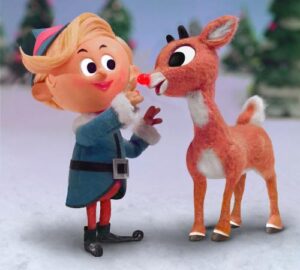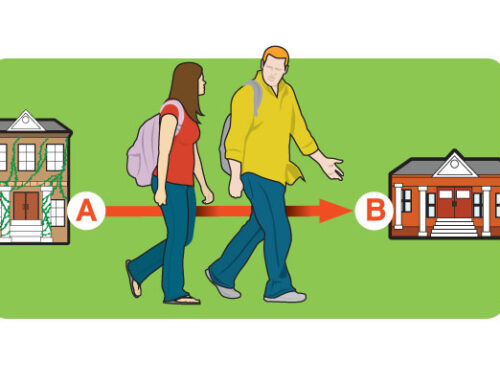
This holiday season marks the 60th anniversary of the Rankin/Bass stop-motion animated classic, Rudolph the Red-Nosed Reindeer. While I’ve watched this many times from my childhood, I’ve only recently realized how forward-thinking it was, in some ways, when describing how we exclude and include those in our communities.
As the story goes, Rudolph is a reindeer who is like any other one, except born with a luminescent nose. Unfortunately, he is ostracized and bullied by the other reindeer for his physical appearance. Sound familiar?
Meanwhile, at Santa’s toy shop, Hermey the elf, has an desire to go into dentistry, rather than make toys. He, too, doesn’t fit in, and is shunned for his avocation. Also sound familiar (like parents who expect their kids to take up a very narrow range of “acceptable” occupations)?
Feeling excluded, Rudolph and Hermey leave their respective communities, and in their travels, arrive at the Island of Misfit Toys, which is inhabited with toys who are unwanted or unloved (often with characteristics a bit different from most toys). Also sound very familiar?
King Moonracer, the winged lion ruler of the island, asks Rudolph and Hermey to ask Santa to find homes for these toys, which they agree to do. Ultimately, Rudolph and Hermey find acceptance back home with much apologies. When poor visibility threatens the delivery of gifts for Christmas, Santa appoints Rudolph as lead reindeer, with his red nose helping light up the way. They make it to the Island of Misfit Toys, picking up the toys to deliver them to children.
Lessons learned:
We are stronger as a community when we give opportunities to all.
Hermey used his dental skills to extract the teeth from Bumble, the abomidable snowman who threatens them; it turns out later that Bumble, now reformed, suffered from a toothache. Rudolph uses his once-scorned red nose as a beacon to help Santa guide his sleigh through the fog. We all gain when we welcome those who may be different in their appearance, background, points of view or interesets AND include them to participate.
We are all worthy of acceptance, love and compassion.
Despite being marginalized, the Misfit Toys were deserving of love and being wanted by children as any other toy. The King of the Island, aided by Rudolph and Hermey, aimed to have these toys placed with children who would appreciate them. We can all practice that, too. Would you want the same for your family and friends?
What are you doing to be inclusive of others?
As a call to action – do you practice being inclusive in your daily life? Do you stand up for the kid who is being bullied or shunned just because of who they are? Do you invite the student who doesn’t have anyone to eat lunch with? Because it’s awful to be shunned or marginalized, as Rudolph and Hermey were, and those who experence that suffer higher rates of mental health issues, including suicide ideation.
If you’re applying to colleges in the near future: remember, institutions in general value students who embrace diversity and inclusion of all, because that positivitely influences educational outcomes, and can attract students, faculty and staff from a wider pool of people.
So make your school, community, and workplace a welcoming atmosphere, for everyone – someoone who might not look like you, talk like you, move like you. It’s the right thing to do.




